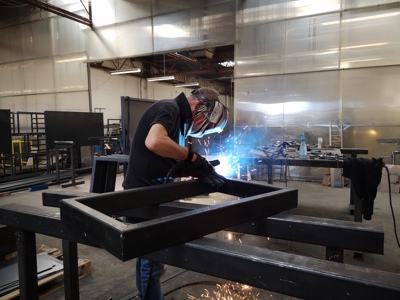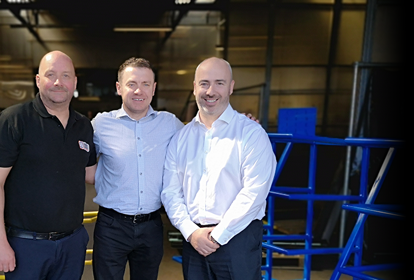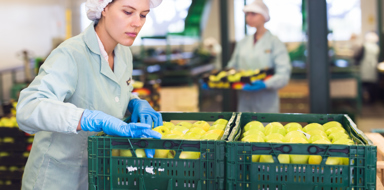
For the last 10 years Abbey Group has been developing and expanding its expertise as a precision engineering company.
Based at Knowsley Industrial Estate in Liverpool, it works across a broad range of solutions to UK industry in the automotive, rail, security, warehousing, energy and nuclear sectors.
As part of its vision for growth Abbey has invested in state-ofthe-art machines for laser cutting, powder coating, galvanising, fabrication, CNC machining and press brake processes.
It has also diversified, developing and manufacturing its own innovative products such as hitech blinds for windows and doors that can protect against 500kg bomb blasts and prevent forced entry, as well as new low cost energy storage solutions.
But growth has been hampered by inefficiencies in its manufacturing processes. That was until it explored digitalisation.
View the case studyThe system has integrated all of our machines on the factory floor with sales, planning, quoting, scheduling and the design processes.
Chris Jones, Managing Director of Abbey Group
Chris Jones, Managing Director, said Abbey’s main problems were that its systems and processes were disconnected.
“We’ve been doing a lot right,” he said. “We had a great team doing brilliant work using the best technology, but as our capabilities increased so did the demands on programming, scheduling and quoting.
“We could not monitor parameters from several different types of machines built by a number of manufacturers. We had no oversight and could only capture information once a job had been completed, at which point, it is too late to address variations.
“It meant keeping on top of cost control – which is imperative – was very difficult.”
Abbey realised that if it was to survive, let alone grow, it had to make some brave and bold choices.
Working with Made Smarter, Abbey found the answer: a new digital material requirement planning (MRP) system.
“The system has integrated all of our machines on the factory floor with sales, planning, quoting, scheduling and the design processes,” Chris explained. “It has allowed us to capture live data and report on potential manufacturing efficiencies and costs.”
One of Abbey’s major concerns was how its 70 employees would react to change.
“We did a lot of work with the staff as part of this process” Chris said. “They knew we had to change if we want to survive. Everyone was onboard with that.”
Having full oversight for the first time has had an instant impact.
Since the arrival of its MRP in July 2019, programming and scheduling at Abbey has increased by 40%, while its capacity to quote has gone up by 60%.
It is now projecting a 22% increase in turnover and a 41% increase in profit.
Meanwhile the region is set to benefit with GVA forecast to increase by £495,045 by 2022.
Chris said: “Live data, bespoke reports, client visibility, supply chain integration, it’s all here now. All our bottlenecks to growth are gone. It’s brilliant.
“When our manufacturing processes reach capacity, we’re looking at creating 30 new jobs.
“This is genuinely a great example of how UK manufacturing can benefit by supporting and investing in SMEs like ourselves.
“The help and support from Made Smarter has projected Abbey into growth areas we didn’t think were possible. We have huge ambitions for this company. This is a helping hand towards that vision.”
The next step is more digitalisation, investing in artificial intelligence as a way of increasing efficiencies.
There will also be a renewed focus on Abbey manufacturing its own flagship products as part of its growth strategy.
“Investing in digital technologies will truly transform our current business, increasing profitability - while remaining highly competitive - allowing us to develop innovative products in-house that will drive growth and sustainability and facilitate further diversification of our product portfolio” Chris said.





